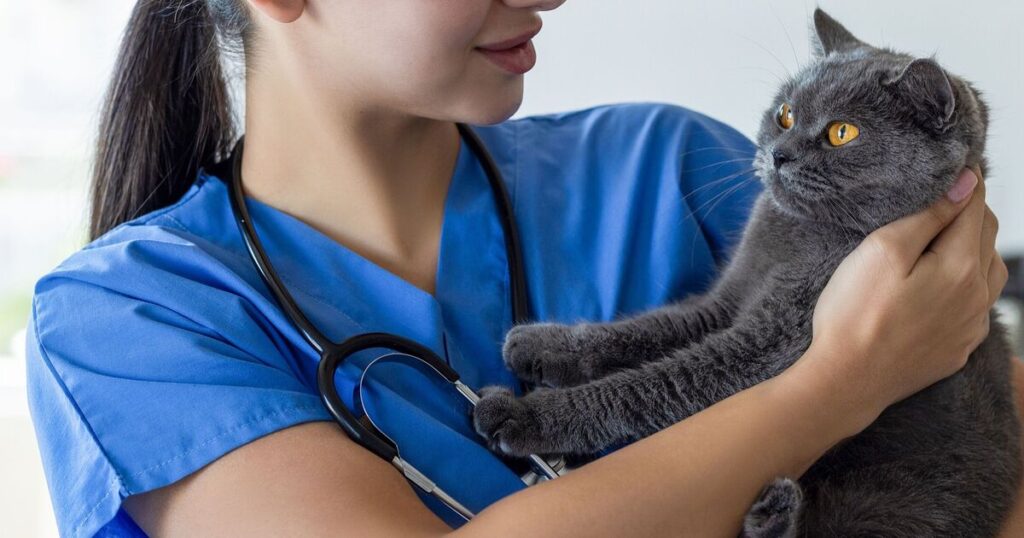
A vet has unveiled the five cat breeds he would personally “never” own due to a variety of potential problems associated with them.
Opening your home to a pet is an enriching experience that can bring joy and much wanted companionship. However, it’s crucial to remember getting a pet is a significant commitment that requires thorough research before making any final decisions.
Cats are incredibly popular in the UK, with around 24% of adults owning an estimated 10.8 million pet cats. Their low maintenance nature, stress-relieving presence, and often quirky personalities contribute to their charm as household pets.
Dr Amir Anwary, a veterinarian with a vast TikTok following, regularly shares his insights and advice on animal care. In one of his latest videos, he reveals the five cat breeds he would “never own as a vet”.
Accompanying the video, Dr Anwary humorously added: “The last one I would definitely not own”, complete with crying laughing emojis.
5. Munchkin
The Munchkin cat, officially recognised in 1991, is known for its short legs caused by a genetic mutation. It’s commonly believed to be the original dwarf cat breed.
Despite their loving and sociable character, the vet has issued a warning about the potential pain and health issues faced by certain adorable pets due to their unique looks.
Dr Anwary explained: “Their short legs are caused by a genetic mutation that can lead to spinal and joint problems (like lordosis or arthritis).”
4. Birman
The Birman, revered as the ‘Sacred Cat of Burma’ for its stunning long-haired coat and distinctive colour-points, is also on the vet’s list, though not because of their attractive deep blue eyes and sought-after white “gloves” on each paw.
This breed, Dr Anwary notes, is “prone to inherited diseases like hypertrophic cardiomyopathy (HCM), and some lines have immune system issues.”
3. Scottish Fold
The Scottish Fold’s docile temperament has won many hearts, but these pets carry serious risk factors.
A dominant gene mutation leads to osteochondrodysplasia, a disorder affecting bone and cartilage development and causing wide-ranging health issues and pain.
Dr Anwary cautioned: “The folded ears come from a cartilage defect that also affects joints, often leading to painful osteochondrodysplasia.”
2. Persian
The vet warned against keeping Persian cats, again due to potential health issues. He stated: “Their flat faces (brachycephaly) can cause chronic breathing problems, dental issues, and tear duct overflow, plus they’re prone to polycystic kidney disease (PKD)”.
Despite their popularity for their luxuriously long fur, adorably round faces, and gentle nature, their distinctive short muzzles see them burdened with health problems.
In some countries, nearly half of the Persian cat population reportedly suffers from PKD due to their squished snouts.
1. Tiger
Topping off the list with a more extreme example, humorous example, the vet listed tigers.
Wild creatures like tigers have notoriously been kept as pets over the years, notably by ex-heavyweight champion Mike Tyson who famously had a penchant for Bengal tigers, and is believed to have owned three.
Keeping a tiger as a pet is fraught with peril; these undomesticated wild animals potentially pose fatal risks to those attempting to contain them in a non-natural setting.
 Latest World Breaking News Online News Portal
Latest World Breaking News Online News Portal






